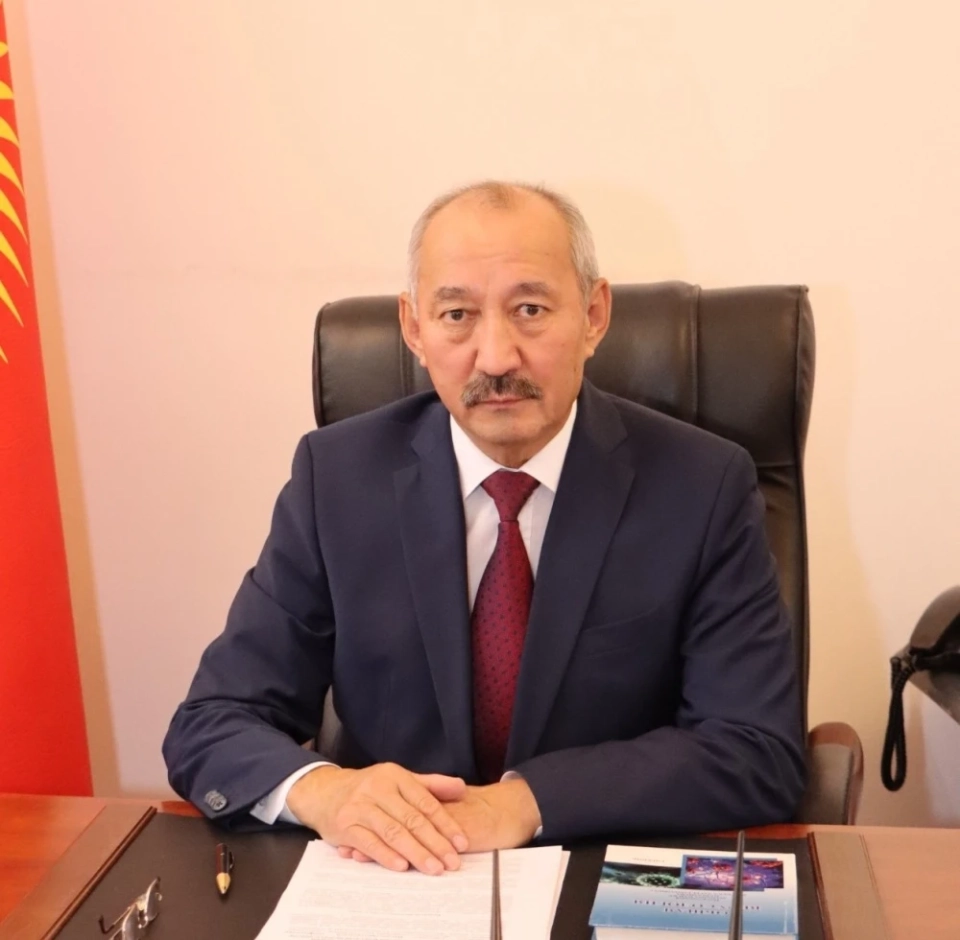Rysbek Nurgaziev: Without Science, There Is No Quality Education
Kyrgyz National Agrarian University is one of the oldest educational institutions in Kyrgyzstan, which has been training specialists for many years who contribute to the development of agriculture, the creation of new technologies and varieties. Today, the university continues to develop its traditions by opening new laboratories, factories, and nurseries, as well as actively collaborating with international partners and implementing a dual education system.
We met with the rector, Rysbek Nurgaziev, for whom scientific activity is an integral part of life.
- When the word "rector" is mentioned, many imagine an administrator. Do you think this is fair?
- Partially. Yes, a rector should be a good manager. However, I always emphasize that it is more important to be a scientific manager. If we are training specialists in practical fields, but we do not have laboratories for experiments and visual study of results, then we are just giving lectures, not preparing specialists.
Science is the foundation of quality. Laboratories, scientific schools, and research culture all support the educational process. Otherwise, faculties should either be strengthened or closed. A university without scientific work turns into an ordinary educational center.
- Last year, KNAU celebrated its 90th anniversary. What does the name Skryabin mean to you?
- It was a significant moment when we recalled the origins of our university.
Konstantin Ivanovich Skryabin is an outstanding scientist of global level. He is a three-time Doctor of Sciences in medicine, biology, and veterinary medicine. An academician of three academies — VASKHNIIL, the Academy of Medical Sciences, and the Academy of Sciences of the USSR. A Hero of Socialist Labor and the first chairman of the branch of the National Academy of Sciences of Kyrgyzstan.
Can you imagine what a level that is?!
I always remind students: if we bear the name of such a person, we must live up to his achievements. We are proud to continue his traditions. Last year, our university was awarded the "Dank" order, and we are grateful to Sadyr Nurgozhoevich for the high appreciation of our team’s work. This recognition is not only for the current teachers and students but also for those who were at the origins of our educational institution when it was still called an agricultural institute.
- Among your graduates, there are many well-known figures. Who would you highlight?
- Undoubtedly, Chinghiz Aitmatov. Few know, but he is a trained zootechnician. He graduated from our university in 1953 and worked at the Institute of Animal Husbandry while simultaneously creating works that became classics of world literature. We are proud that it was our graduate who glorified Kyrgyzstan and the Soviet Union on the international stage.
Besides him, among our graduates are many outstanding individuals, such as ministers, deputies, directors of successful farms, engineers, and scientists. Each of them is an integral part of the history of our university.
- You emphasize the importance of science and laboratories. Why is this so critical for you?
- Science is the foundation of the future. Just a few years ago, we thought it was enough to build one modern laboratory. However, it soon became clear that science must be inextricably linked to practice. Therefore, we implemented a dual education system where theory and practice go hand in hand. Students do not just listen to lectures; they participate in real processes, which allows them to gain experience.
- Recently, there has been active discussion about the interaction between science and business. Are there examples of such cooperation at your university?
- Yes, we have bright examples. For two years, we have been conducting agri-dialogues — platforms for communication between farmers, representatives of the agro-industrial complex, and the scientific community. The Deputy Prime Minister, Minister of Water Resources, Agriculture, and Processing Industry Bakyt Torobaev actively participates in these events. He attends them throughout the day, discussing specific problems and asking questions.
Last year, we held an agri-dialogue within the walls of the university, resulting in the signing of 26 cooperation agreements. These are not just formal documents, but real programs: training personnel, internships, and joint scientific research. The most important thing is that mutual understanding has been established between the university and business.
- One of your significant projects is a seed production factory. Can you tell us more about it?
- Yes, this is our pride. Without seed production, it is impossible to talk about food independence. In several countries, including Russia, up to 70% of vegetable seeds are imported. Without our seeds, there can be no stability.
We built a vegetable seed production factory, which includes nine greenhouses, laboratories, storage facilities, classrooms, and even housing for students. Here, students learn, conduct research, and visually see the results of their work.
At the opening of the factory, Deputy Prime Minister Bakyt Torobaev was present, who supported the implementation of the project. We express our sincere gratitude to Bakyt Ergashovich. The ambassador of South Korea and representatives of the project "Assistance in Creating Infrastructure for Vegetable Seed Production in Kyrgyzstan," funded by the Korean Rural Community Corporation, were also present at the opening. All guests were impressed — our university has truly become a production site.
- What are your plans for the development of this cluster?
- We have a clear plan for the next 6, 9, 12, and 24 months. We are forming a seed assortment, expanding the base, training students, and developing selection. In November, we will organize a large meeting with businesses for joint production planning. This is our path to quality seed material and, in the future, to export.
- Do you have other scientific projects?
- We won a grant from the World Bank to create a Center for Biological and Food Safety, which will focus on producing reagents for diagnosing viral diseases in humans and animals.
During the pandemic, I worked with virology laboratories, and my students participated in research. I understand that virology is unified. Diseases in animals can transfer to humans, as in the cases of swine and avian flu or coronavirus. Therefore, joint work between veterinarians and doctors is extremely important.
Additionally, we are building the first horse clinic in Kyrgyzstan, which will have an immunohistochemical laboratory and modern equipment. All of this is being created on a grant basis with the support of Korean partners.
- Are you also developing laboratories for plant microcloning?
- Yes, in collaboration with Japanese and Korean colleagues. This direction includes in vitro propagation of plants. We have already prepared tens of thousands of raspberry seedlings and virus-free potato planting material. The yield has amazed us. In the future, we plan to grow seedlings for gardeners throughout the country to reduce dependence on imports and improve product quality.
- The university is also actively involved in environmental projects. How did this start?
- We supported the initiative of President Sadyr Japarov within the framework of the "Green Heritage" program. In Soviet times, about 40 million seedlings were planted annually. We decided to revive this practice. Currently, about 30,000 hybrid poplar and black locust trees are growing in our nurseries. By 2027, we plan to grow 300,000 seedlings.
Poplar is a record-holder for air purification and moisture retention, while black locust is drought-resistant. These trees are necessary for improving the urban climate. Our goal is not only to green the area but also to create ecological belts around cities, which will contribute to the country's future.
- What has changed after the university received special status?
- We have become a scientific and production complex. Now we have the opportunity to engage in business, develop and implement projects, as well as earn and invest in development. This has opened new horizons for our independence. We can be more flexible and respond quickly to requests without waiting for instructions from above.
- International cooperation is one of the priority areas. Who are you currently working with?
- We are actively collaborating with Hungary. This year, we opened the Kyrgyz-Hungarian Center for Innovations in the Agricultural Sector together with MATE University, the largest agricultural university in Europe. This includes faculty exchanges, joint research, and participation in grants. I have visited Hungary several times and even received the title of honorary professor.
Additionally, about 200 of our students annually undergo academic mobility in Kazakhstan, Russia, Germany, and Poland. This not only broadens their horizons but also enhances the prestige of Kyrgyzstan.
- Why do you think the state should support science?
- This is an investment with deferred but inevitable returns. Today you finance a laboratory, and tomorrow it provides the country with new technologies. Results do not appear in a year, but in 5-10 years, they can radically change the industry.
Look at China: thirty years ago, they were buying our machines, and now they are the second-largest economy in the world. This became possible due to systematic investments in science, education, and technology. And we need to follow this path.
- What is the main mission of your university?
- Training personnel to ensure the country's food and biological safety. But that's not all. We also strive to cultivate intelligent, patriotic, and responsible specialists. Education is not just a profession; it is a culture. An educated person always has an inner core and a sense of duty to their country.
- The university is known for its scholarships. Who supports the students?
- We have a fund named after Professor Grigory Aikazovich Balyan, who was an outstanding scientist. His son, Heinrich Grigoryevich Balyan, is the founder of the fund and an honorary professor of our university. Over 14 years, 149 students have received named scholarships, and now 20 of the best students receive 5,000 soms monthly. This is real support, especially for students from the regions.
- What do you think is the key to the success of a strong university?
- The formula is simple: science + education + production.
These are not three separate areas but three pillars on which a modern educational institution stands. Where there are laboratories, factories, clinics, nurseries, and international centers — there is development. Where science is present, there is quality education, and with quality comes a confident future for the country.
Read also:
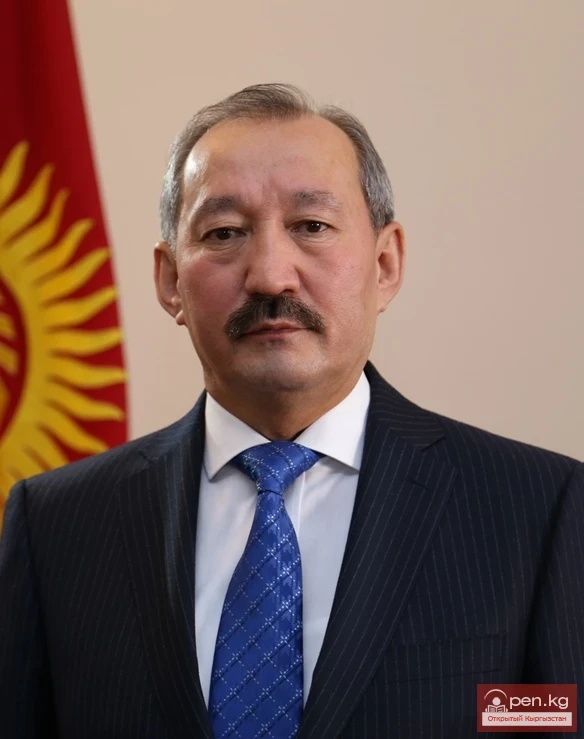
Nurgaziev Rysbek Zarildykovich
Nurgaziev Rysbek Zarildykovich (1961), Doctor of Veterinary Sciences (1997), Professor (1999)...
KNAU held the "First-Year Student Initiation"
On October 30, 2025, an important event took place at the Toktogul Satylganov Kyrgyz National...
In Bishkek, Kant, and Kara-Balta, the exhibition of Russian universities "Education in Russia 2026/27" will take place.
From October 29 to 31, 2025, an exhibition of Russian universities titled "Education in Russia...
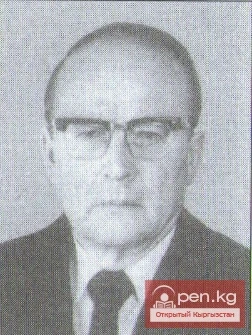
Pavel Ivanovich Chalov
Chalov Pavel Ivanovich Doctor of Technical Sciences, Professor, Academician of the National...
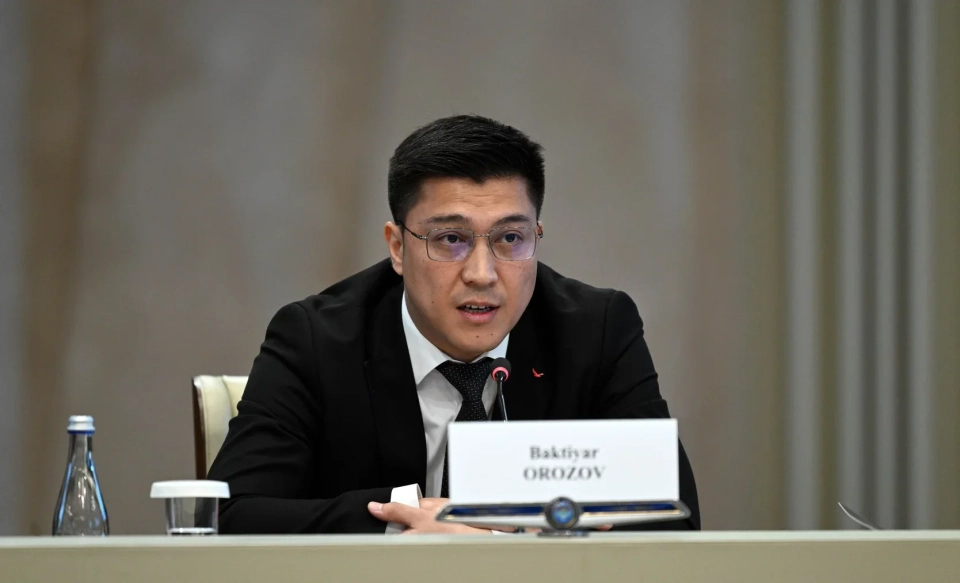
Bakhtiyar Orozov: The 100th Anniversary of the National University - A Reflection of the Formation and Development of the State
An important milestone in the history of the Kyrgyz National University, marking its 100th...
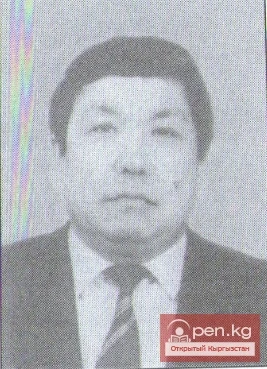
Toktomyshev Sovetbek Zhaylobaevich
Toktomyshev Sovetbek Zhaylobayevich Doctor of Technical Sciences, Professor, Academician of the...
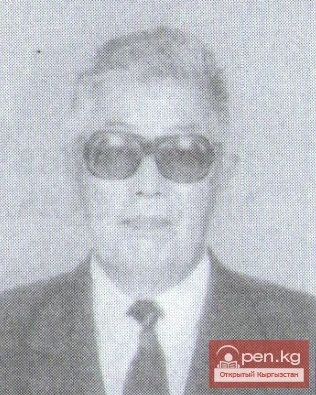
Imanaliev Murzabek
Imanaliev Murzabek Doctor of Physical and Mathematical Sciences, Professor, Academician of the...
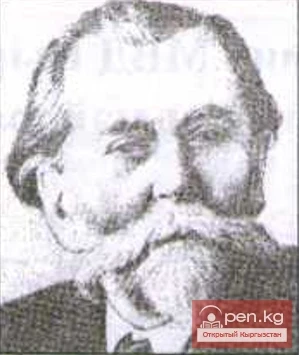
Skrjabin Konstantin Ivanovich
Skrjabin Konstantin Ivanovich (1878-1972), Doctor of Agricultural Sciences, Professor (1920),...
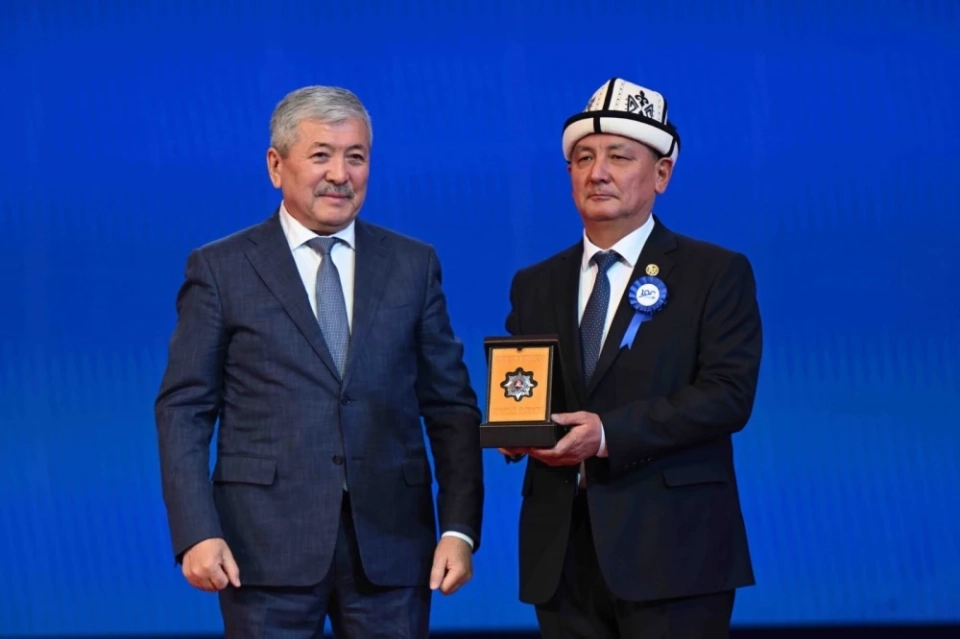
Jusup Balasagyn National University Awarded the Order of "Manas" III Degree
At the ceremonial event dedicated to the 100th anniversary of the Kyrgyz National University named...
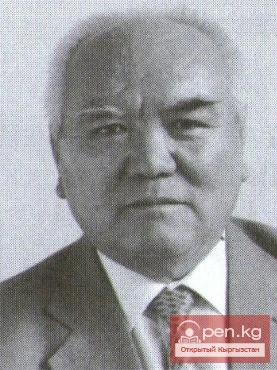
Tekenev Zhapар Tekenevich
Tekenev Zhapар Tekenevich Doctor of Technical Sciences, Academician of the National Academy of...

The Founder of Systematic Science in Kyrgyzstan
Bronze Monument In the late 1970s, a competition was held in the republic to create a monument to...
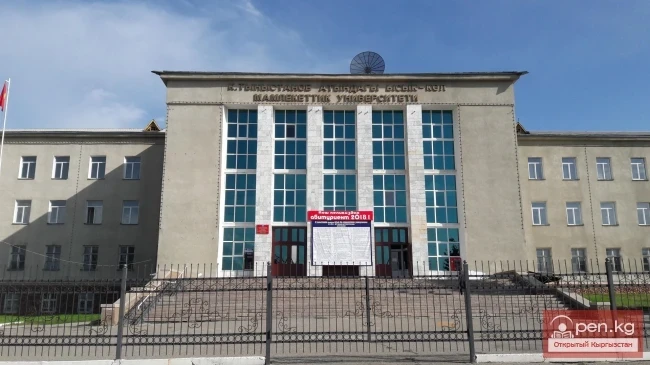
Universities and Higher Educational Institutions of Kyrgyzstan
Issyk-Kul State University named after K. Tynystanov Issyk-Kul University named after K. Tynystanov...
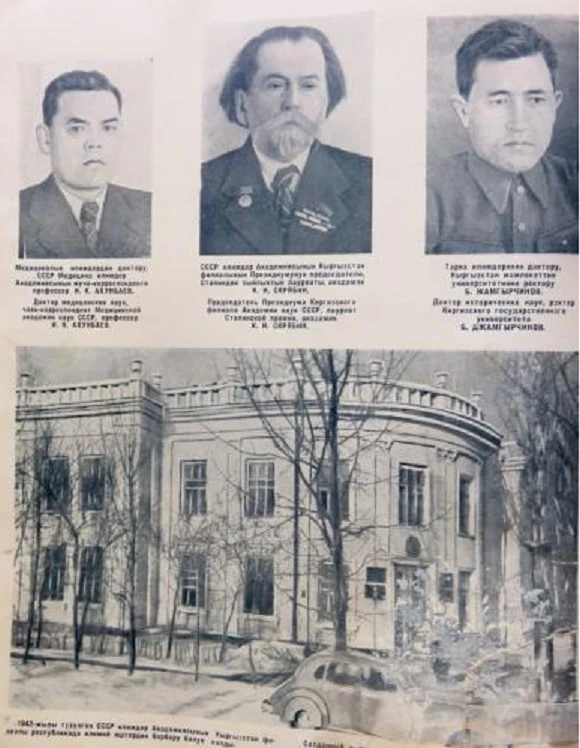
Establishment of the Academy of Sciences in Frunze. Document No. 197 (December 1954)
Frunze, December 21, 1954. The Council of Ministers of the USSR adopted a resolution on August 17,...
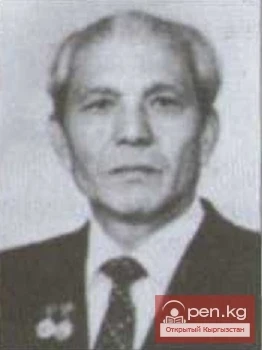
Usubakunov Mamyt Usubakunovich
Usubakunov Mamyt Usubakunovich Doctor of Chemical Sciences, Professor, Corresponding Member of the...
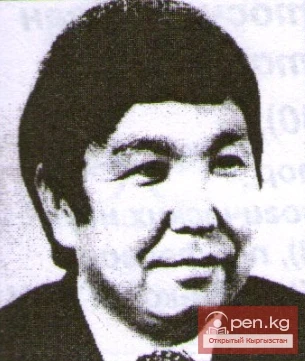
Toktomyshev Sovetbek Zhaylobekovich
Toktomyshev Sovetbek Zhaylobekovich (1943), Doctor of Technical Sciences (1983), Professor (1983),...
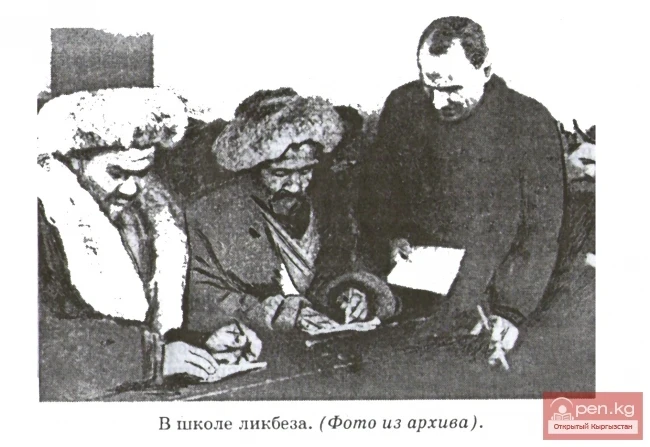
Public Education and Science in Kyrgyzstan
Education. By the time Soviet power was established in Kyrgyzstan, its population was completely...
Livestock Raised in Kyrgyzstan for 90 Years. Archive Photographs
In 2021, the Kyrgyz Scientific Research Institute of Animal Husbandry and Pastures celebrated its...
The Story of Kyrgyzstani Sardarbek Su laymanov in Denmark: Even Using the Toilet Doesn't Save You from Fare Evasion
Sardarbek, born on August 24, 2003, in the Nookat district of the Osh region, currently lives in...
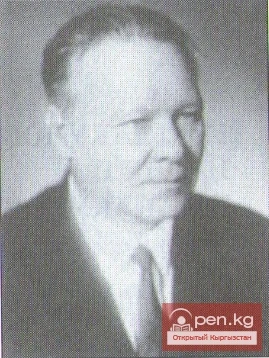
Ivanov Konstantin Ivanovich
Ivanov Konstantin Ivanovich Doctor of Technical Sciences, Professor, Honorary Academician of the...
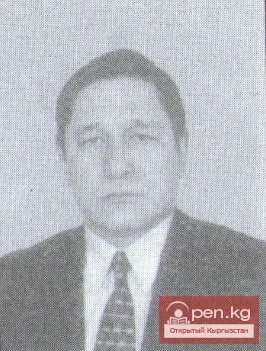
Kutanoff Askar Asanbekovich
Kutano Askar Asanbekovich Doctor of Technical Sciences, Professor, Academician of the National...
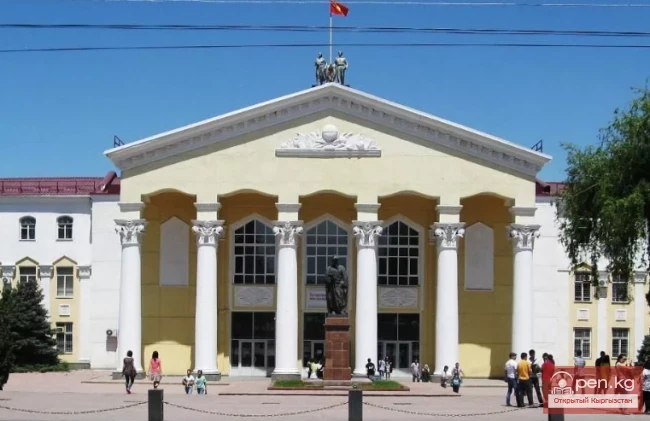
Higher Educational Institutions of Kyrgyzstan
Universities and Higher Educational Institutions of Kyrgyzstan Chui University Chui University...
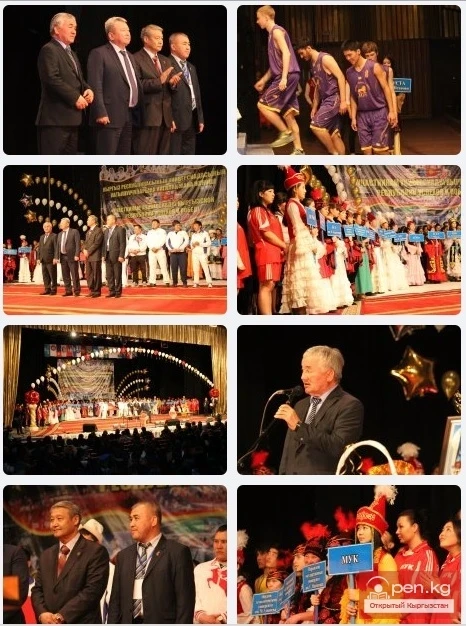
Opening of the Universiade - 2015
On March 13, the solemn opening of the Republican Universiade took place at the Koshomkul Sports...
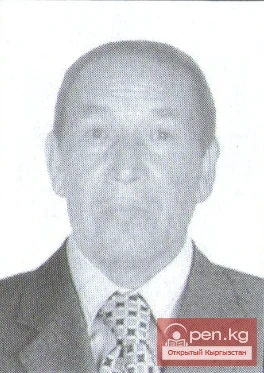
Ishembay Sodombekov Sodombekovich
Ishembay Sodombekov Doctor of Biological Sciences, Professor. Born in 1950. Graduated from the...

Omuraliyeva Aiyumzhan
Omuraliyeva Aiyumzhan Born in 1977. Graduated from the Kyrgyz National University, Faculty of...

Technical Schools of the City of Osh
Technical Schools of Osh The city is home to a number of specialized secondary educational...
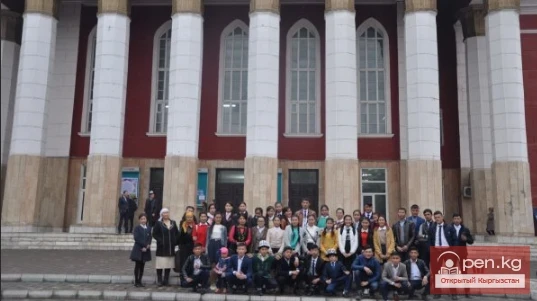
Higher Educational Institutions of the City of Osh
Higher Educational Institutions of Osh During the tenure of Director A. Myrzabekov, two new...
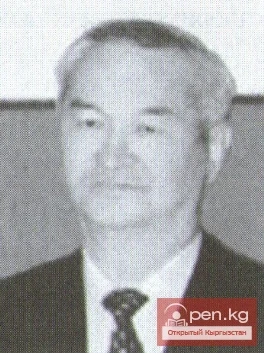
Murzubraimov Bektemir
Murzubraimov Bektemir Doctor of Chemical Sciences, Professor, Academician of the National Academy...

The Second Educational Exhibition-Fair of Russian Universities in Kyrgyzstan
From April 17 to 19, 2015, the II Exhibition-Fair of Educational Organizations of the Russian...
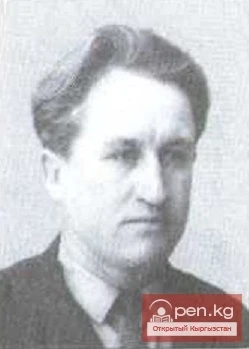
Bochkaryov Yakov Vasilyevich
Bochkarov Yakov Vasilievich Doctor of Technical Sciences, Professor, Corresponding Member of the...
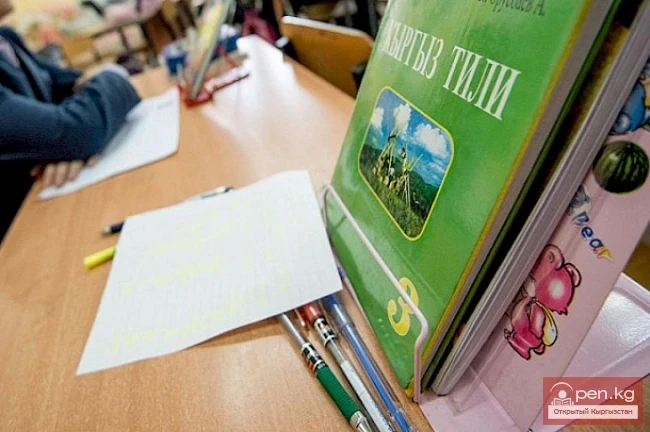
Kyrgyz Language and Culture to be Studied in Chinese Universities
Heads of educational institutions agreed on the implementation of a dual diploma project under the...
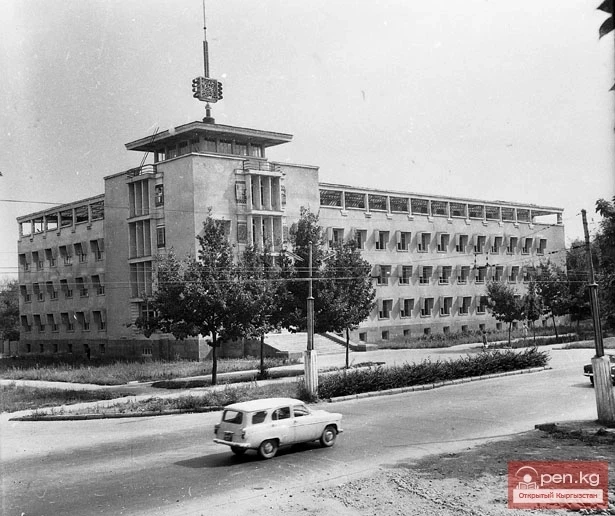
Development of Science in Kyrgyzstan during the Soviet Period
1960-1966. Academy of Sciences of the Kyrgyz SSR Certain successes were achieved in science. In...
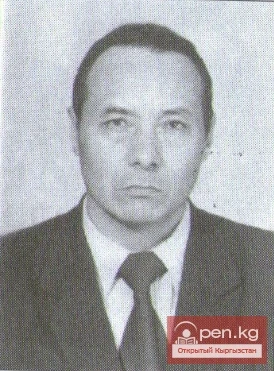
Turdumambetov Keneshbek
Turdumambetov Keneshbek Candidate of Chemical Sciences. Born in 1949. Graduated from Kyrgyz State...
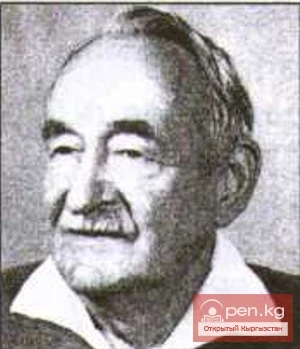
Dmitry Ivanovich Shcherbakov
Dmitry Ivanovich Shcherbakov (1893-1966), Doctor of Geological and Mineralogical Sciences,...
The international online seminar "Green Campuses and Environmental Education" took place at KGTU.
On October 23, 2025, an international online seminar dedicated to "Green Campuses and...
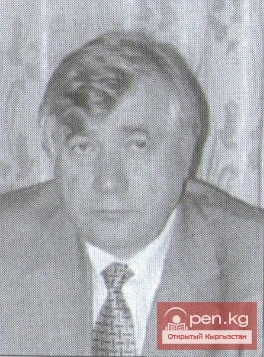
Vladimir Ivanovich Nifadyev
Nifadyov Vladimir Ivanovich Doctor of Technical Sciences, Professor, Academician of the National...
What is Needed for the Development of High-Tech Medical Care in Kyrgyzstan? Opinion of Professor I. Pershukov
Professor and Doctor of Medical Sciences, as well as Doctor of Philosophy (PhD) Igor Pershukov...
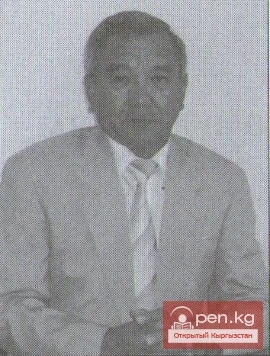
Orozaliev Tolomush Orozalievich
Orozaliev Tolomush Orozalievich Candidate of Technical Sciences, Doctor of Agricultural Sciences,...
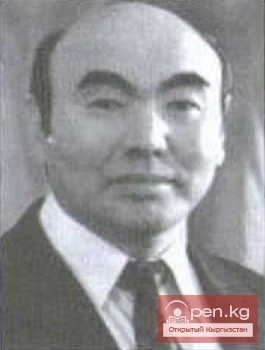
Akaev Askar Akayevich
Akayev Askar Akayevich Doctor of Technical Sciences, Professor, Academician of the National...
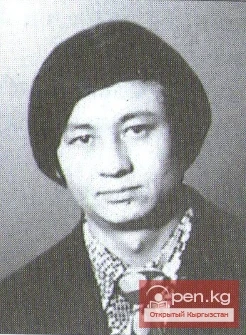
Choi Alexander Dmitrievich
Tsoi Alexander Dmitrievich Candidate of Chemical Sciences. Born in 1954. Graduated from the Kyrgyz...
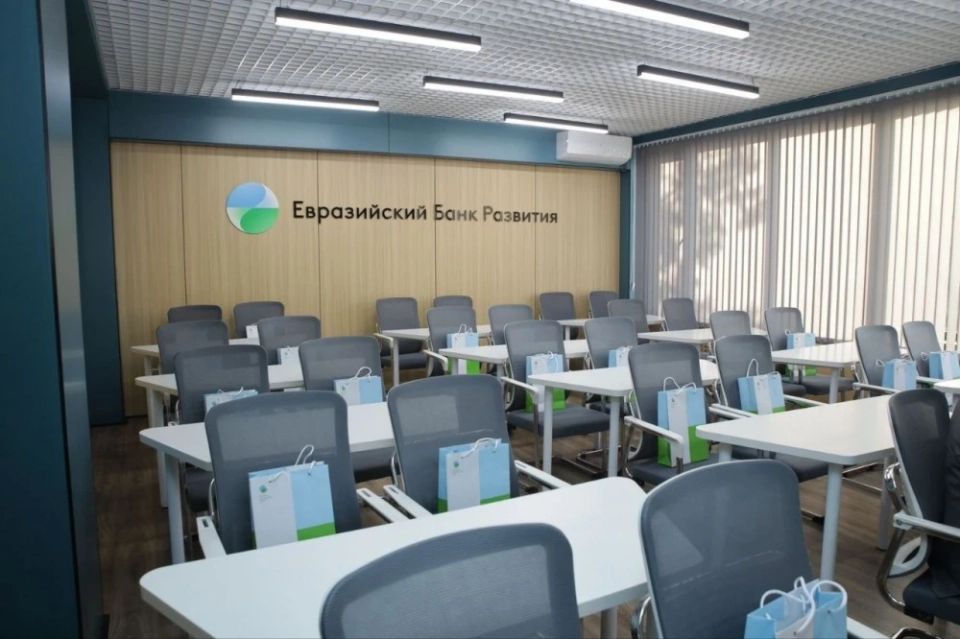
A branded classroom of the Eurasian Development Bank has opened at KRSU
The opening of the auditorium became part of the technical assistance project of the Eurasian...
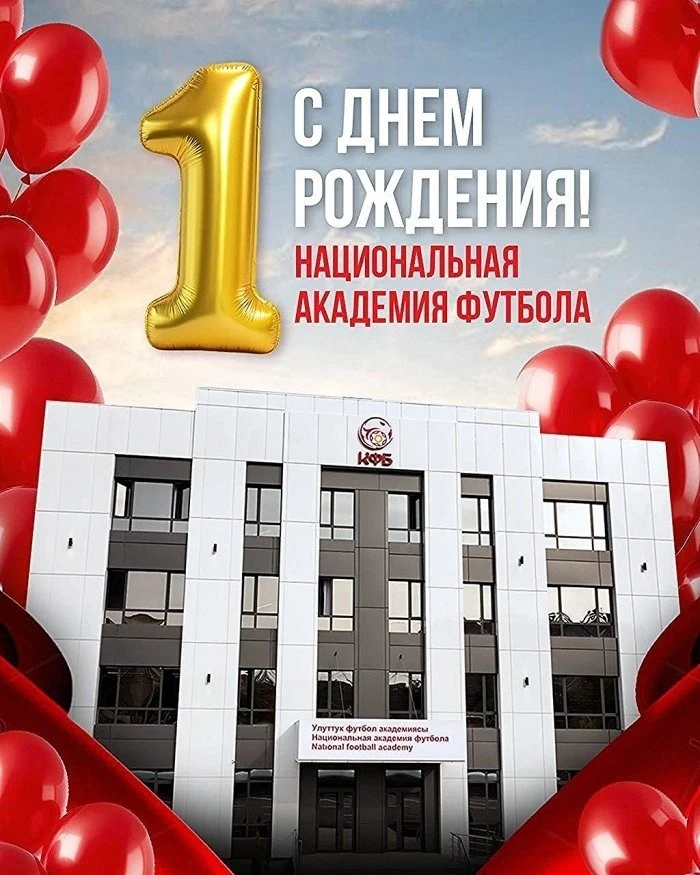
The National Football Academy of the Crimean Football Union is One Year Old
Recently, the National Football Academy of the Kyrgyz Football Union celebrated its first year of...
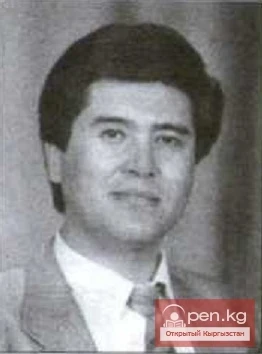
Adambekov Dokturbek Adambekovich
Adambekov Dokturbek Adambekovich Doctor of Medical Sciences, Professor, Honored Scientist of the...
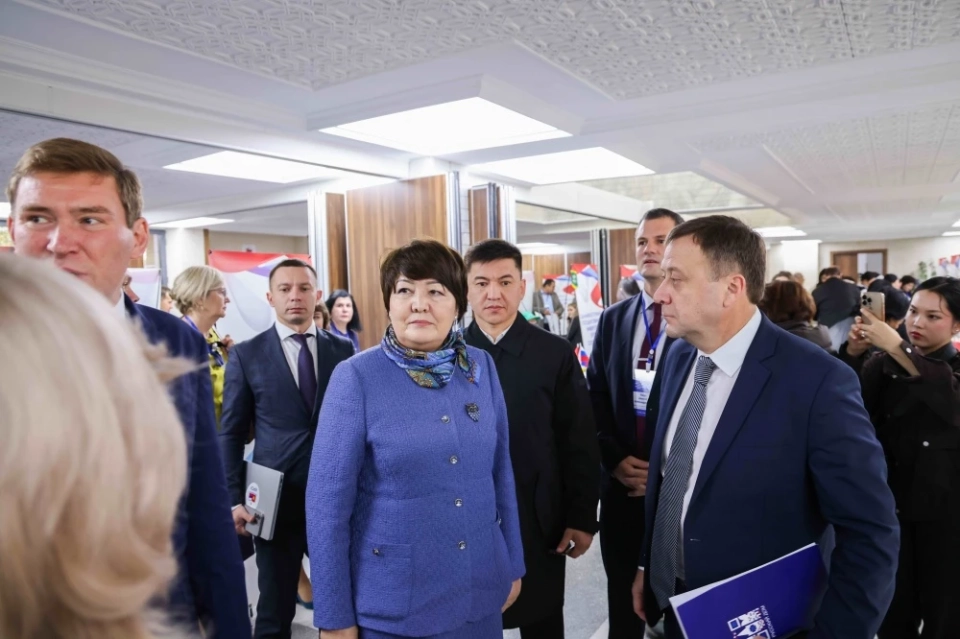
Kyrgyzstan and Russia are Building a Common Future for School Education
In Bishkek, the III Forum of School Leaders of the Kyrgyz Republic took place, serving as an...
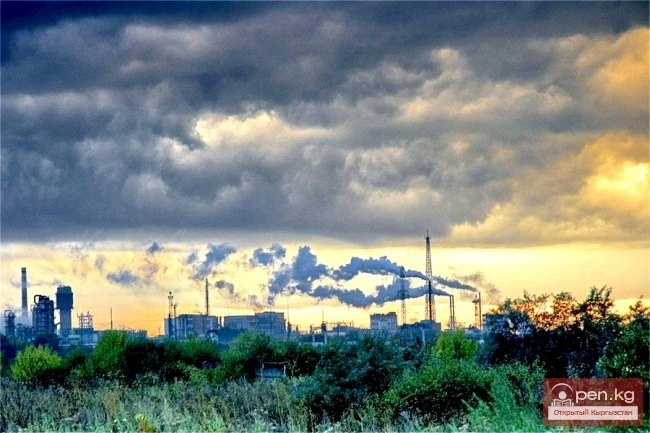
Pollution of the Atmosphere and Its Consequences
Geoecological Condition and Requirements for Air Protection....
